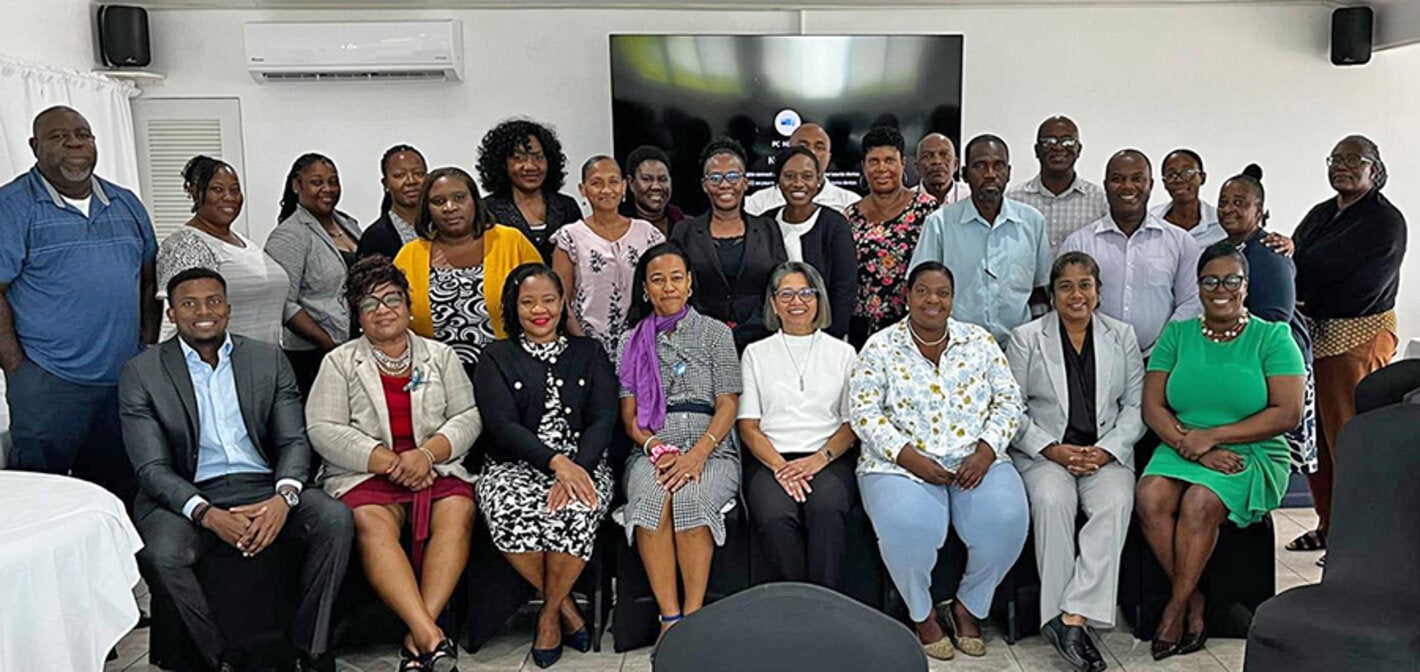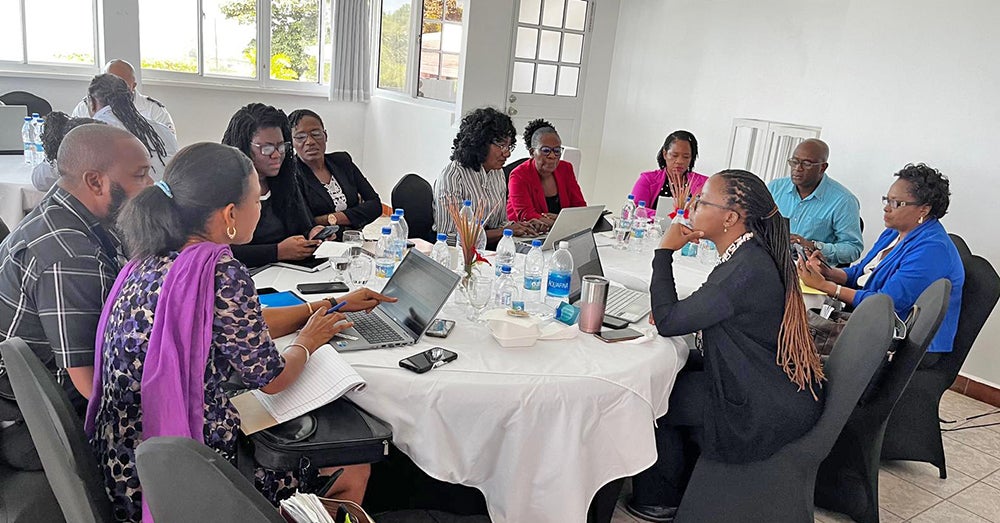
Antigua and Barbuda, 23 August 2024 (PAHO) – Following a weeklong workshop on Strategic Risk Assessment and Multi-hazard Planning, Antigua and Barbuda are in a better position to assess risks related to heath emergencies.
The workshop was a collaboration between the Ministry of Health, Wellness, Social Transformation and Environment of Antigua and Barbuda and the Pan American Health Organization/World American Health Organization (PAHO/WHO).
Participating departments included the National Office of Disaster Services (NODS), Antigua and Barbuda Meteorological Services, Veterinary Livestock Department of the Ministry of Agriculture, Antigua and Barbuda Defence Force, Clarevue Psychiatric Hospital, Assistant Secretary of Health Institutions, Central Board of Health, Port Health and the Lester Bird Medical Centre. They were joined by representatives of the Ministry of Tourism, Civil Aviation, Transportation, and Investment; the Ministry of Education, Sports and Creative Industries; the Ministry of Social Transformation – Disability Unit; emergency medical services personnel, and staff from the government laboratory, epidemiology and surveillance unit, Emergency Medical Team, Hanna Thomas Hospital and Primary Health Care of Barbuda.
A risk assessment is a systematic process of identifying hazards, evaluating their likelihood and potential impact, and determining the necessary steps to mitigate or respond to them. By conducting a risk assessment based on evidence-based data, countries can identify their most pressing health security risks and prioritize capacity-building efforts and financing towards addressing those risks (Health Emergency and Disaster risk management).
During the workshop, participants reviewed and updated the National Health Sector All Hazard Plan, to incorporate experiences and lessons learned from Hurricane Irma, COVID-19 pandemic, and other emergencies. Participants also identified the most pressing public health risks to help them plan and prioritize health emergencies and disaster risk management activities.
The Strategic Toolkit for Assessing Risks (STAR) was used. It is a comprehensive toolkit to enable countries and regions to conduct a strategic, rapid, and evidence-based assessment of public health risks for planning and prioritization of health emergency and disaster risk management activities.
Chief Medical Officer (Ag), Dr Kamaria DeCastro, commented: "We are very happy that at this critical time, our National Health Sector All Hazard Plan is being reviewed and updated collaboratively with PAHO, departments within the Ministry of Health, Wellness, Social Transformation and the Environment, other government ministries and departments, and partner agencies. We are investing our energies to address health emergencies, especially with the recent passage of Hurricanes Beryl and Ernesto in this early phase of the hurricane season. Once updated we will seek approval of our All-Hazard Plan, mobilize resources and ensure stakeholder engagement."
Dr. Amalia Del Riego, PAHO/WHO Representative for Barbados and the Eastern Caribbean Countries, surmised: “Risk assessment is a critical component of health security planning, as it helps identify the most pressing health security risks facing a country. We now have a strong appreciation for the importance of emergency preparedness and health security, following the pandemic and recent natural disasters in our region.”




